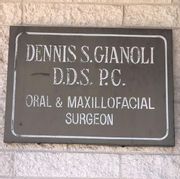
Wisdom teeth don’t typically emerge until one’s late teens or early adult years, but when they do, they can cause a variety of problems. As such, many people will need to visit an oral surgeon for wisdom tooth removal. To help you assess your need for oral surgery and what to expect from the process, here are a few common questions about the procedure.
4 Wisdom Tooth Removal FAQ
What Can Happen If Wisdom Teeth Aren’t Removed?
When there isn’t enough room for wisdom teeth to emerge properly, they can press up against surrounding teeth. This impaction can cause severe misalignment as other teeth are pushed forward. There’s also a high risk of infection, which can cause a variety of oral health issues—such as pain and bleeding.
When Is Wisdom Tooth Removal Necessary?
 In general, most people can tell if they need wisdom teeth removal by visiting their dentist for routine exams. Digital x-rays can show when the molars are coming in and are ready to be removed.
In general, most people can tell if they need wisdom teeth removal by visiting their dentist for routine exams. Digital x-rays can show when the molars are coming in and are ready to be removed.
If you don’t have preventive surgery, you may suffer from symptoms of wisdom tooth impaction—such as an ongoing pain at the back of the mouth, infection, swelling, and bleeding. If you notice these signs, consult a dentist immediately to determine if wisdom tooth removal is necessary.
What Happens During the Procedure?
Wisdom tooth removal is a routine surgical procedure. Skilled specialists can usually complete the surgery in about two hours.
Before the surgery, you will be given general anesthesia that will cause you to lose consciousness and stop you from feeling pain. Next, your oral surgeon will make a small incision in the gum tissue at the back of the mouth to access the wisdom teeth. Special forceps are used to grip the teeth and gently rock them out of place until they are fully dislodged. The surgical site is then cleaned and sutured to start the recovery process.
How Can You Ensure a Successful Recovery?
Follow all aftercare instructions provided by your oral surgeon. Typically, you will need to rest for a few days, rinse with a saltwater solution, and take prescription pain medications to ensure proper healing. You’ll also want to stick to a soft diet, as hard and chewy foods can cause dry sockets—a painful condition that occurs when the blood clot becomes dislodged.
If you’re due for wisdom tooth removal, get in touch with Dennis S. Gianoli DDS, PC. Serving the Berlin, CT community for over 30 years, Dr. Gianoli can make your wisdom tooth removal as stress-free and comfortable as possible. From your initial consultation to the recovery process, this surgeon and his team will provide friendly support every step of the way. To learn more about their services and resources, visit this clinic online. For a consultation, call (860) 828-3559.
About the Business
Have a question? Ask the experts!
Send your question

